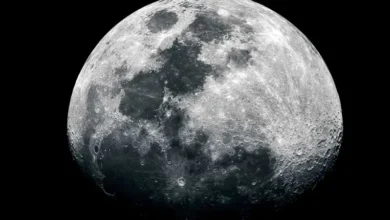Trump deports 238 ‘gang members’ to El Salvador: What’s the controversy?

President Donald Trump’s administration has deported alleged members of the Venezuelan gang Tren de Aragua from the United States to El Salvador despite a court order prohibiting their expulsion from the country.
Sunday’s move is the latest in a series of steps by the Trump administration to expel foreign nationals – some accused of being in the US without documentation, others targeted over campus protests.What happened?
El Salvador President Nayib Bukele said on Sunday that his country had received 238 Tren de Aragua members and an additional 23 members of the Salvadoran gang MS-13 from the US.
Bukele had agreed to jail members of these groups on behalf of the US in a meeting with Secretary of State Marco Rubio last month.
He said these deportees were in the custody of the Central American country’s Centre for the Confinement of Terrorism (CECOT) for a one-year period that could be extended.
During Trump’s inauguration speech, he said he would invoke the 1798 Alien Enemies Act. On Saturday, Trump signed a proclamation invoking that 227-year-old law. The proclamation claims that Tren de Aragua is “perpetrating, attempting, and threatening an invasion or predatory incursion” against US territory. It adds that all Venezuelan citizens aged 14 or older “who are members of” the gang and are not naturalised or lawful permanent US citizens are liable to be restrained and removed as “Alien Enemies”.After Trump’s order, federal Judge James Boasberg, the chief judge of the District Court for the District of Columbia, issued a temporary restraining order to block Trump’s ability to exercise wartime powers to carry out deportations. This was during a hearing on Saturday sought by the American Civil Liberties Union.
But hours later, Bukele confirmed that the Trump administration had nevertheless gone ahead with the deportations. He shared a snippet of a news article about the judge’s ruling, captioning it: “Oopsie … Too late” with a crying-with-laughter emoji.
What is the Alien Enemies Act, and how does it work?
The Alien Enemies Act allows US presidents to detain or deport noncitizens during wartime. In 1798, the US was preparing for what it believed was a war with France. The law was introduced to prevent immigrants from sympathising with the French.Why is this controversial?
While Trump and his allies have argued that the US is at threat of “invasion” by undocumented immigrants, critics said the president is wrongly invoking the wartime law.
An explainer published by the Brennan Center for Justice last year said invoking the act “in peacetime to bypass conventional immigration law would be a staggering abuse”.
“The courts should strike down any attempted peacetime use of the Alien Enemies Act,” it added.The Fifth Amendment of the US Constitution protects the right to a grand jury. “No person shall be held to answer for a capital, or otherwise infamous crime, unless on a presentment or indictment of a grand jury,” it states, adding that wartime is one of the few exceptions to this.
The fact that the Trump administration possibly defied a judge’s order further exacerbates this controversy.
The White House’s action was in “open defiance” of Boasberg’s order, Patrick Eddington, a homeland security and civil liberties legal expert at the Washington, DC-based Cato Institute, told the Reuters news agency.
“This is beyond the pale and certainly unprecedented,” Eddington said.
But White House Press Secretary Karoline Leavitt has pushed back against the criticism.
“A single judge in a single city cannot direct the movements of an aircraft … full of foreign alien terrorists who were physically expelled from US soil,” Leavitt said in a statement posted on her X account on Sunday. She added: “Federal courts generally have no jurisdiction over the President’s conduct of foreign affairs.”
Bruce Fein, an American lawyer specialising in constitutional and international law, disagreed.
“The president is not a king. January 20, 2025, was not a coronation,” Fein told Al Jazeera, referring to the day Trump was inaugurated. “The president is not Napoleon. … Federal courts have jurisdiction over the president. The probability that Trump flouted Judge James Boasberg’s order is high, but we need to await more due process.”










